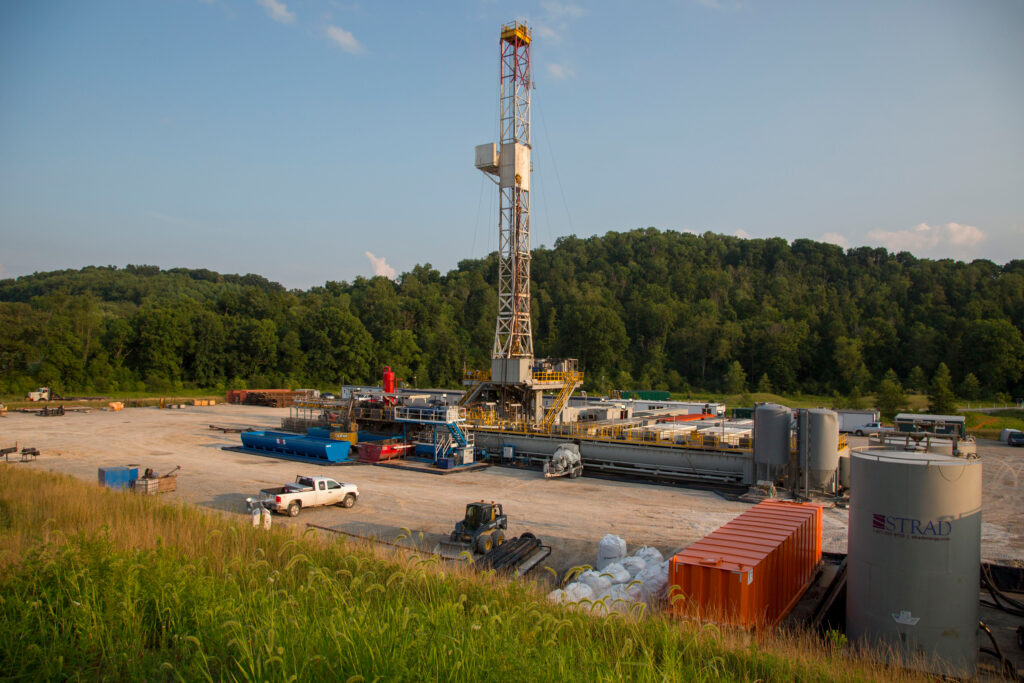More than 85 climate scientists declared the Department of Energy’s new climate report unfit for policymaking in a comprehensive review released Tuesday. The DOE’s report cherry-picked evidence, lacked peer-reviewed studies to support its questioning of the detrimental effects of climate change in the U.S. and is “fundamentally incorrect,” the authors concluded.
Scientists have accurately modeled and predicted the volume and impact of excess CO2 in the Earth’s atmosphere since the 1970s, when Exxon workers first began measuring the impacts of their product on the planet’s atmosphere. Since then, climate science has matured into a crucial tool to help humans gauge how a warming planet may affect everything from weather and crops to the economy and mental health.
“This report makes a mockery of science. It relies on ideas that were rejected long ago, supported by misrepresentations of the body of scientific knowledge, omissions of important facts, arm waving, anecdotes, and confirmation bias,” said Andrew Dessler, a professor of atmospheric sciences at Texas A&M University, in a statement accompanying the review.
“This report makes it clear DOE has no interest in engaging with the scientific community.”
A DOE spokesperson said in an email that the report was prepared as part of the Trump administration’s effort to engage “in a more thoughtful and science-based conversation about climate change and energy. This report was reviewed internally by DOE scientific researchers and policy experts from the Office of Science and National Labs. The report is open to wider peer review from the scientific community and general public via the public comment period.”
U.S. government scientists have for decades contributed to Intergovernmental Panel on Climate Change reports, considered by many to be the Earth’s preeminent collection of climate science. The process and timeline the DOE followed in creating the new report before releasing it in July is unknown, and there do not appear to have been any public meetings associated with its drafting process. The document was internally peer reviewed “amongst DOE’s scientific research community,” the agency said in a statement accompanying the report’s release.
While it is not uncommon for scientists to disagree, many of the review’s authors feel what the DOE produced isn’t science at all. “Trying to circumvent, bypass, undermine decades of the government’s own work with the nation’s top scientists to generate definitive information about climate science to use in policymaking—that’s what’s different here,” said Kim Cobb, a professor of Earth, environmental, and planetary sciences at Brown University and director of the Institute at Brown for Environment and Society. Cobb co-authored two sections of the review.
Under President Donald Trump’s second administration, the Environmental Protection Agency has announced that it is reconsidering the 2009 endangerment finding that allows the agency to regulate greenhouse gases under the Clean Air Act. In its proposal to rescind the finding, the EPA cited the DOE’s climate report as one of many that led the agency to develop “serious concerns” with how the U.S. regulates greenhouse gases.
“It’s really important that we stand up for the integrity of [climate science] when it matters the most,” Cobb said. “And this may very well be when it mattered the most.”
Roger Pielke Jr., a science policy analyst and senior fellow at the American Enterprise Institute, who is cited in the DOE report, doesn’t believe the push to overturn the endangerment finding will come down to that report. In his view, the administration’s arguments are mostly legal, not scientific. “I think that given the composition of the Supreme Court, the endangerment finding might be in danger. But it’s not going to be because of the science,” he said.
But as more communities grapple with the fallout of hurricanes, wildfires, floods and other natural disasters exacerbated by climate change, Cobb fears the federal government is turning away from the best tool it has to help people across the U.S. adapt to a warming planet.
“Science is a tool for prosperity and safety,” she said. “And when you turn your back on it in general—it’s not just going to be climate science, it’s going to be many other aspects of science and technology that are going to be forsaken—that will have grave costs.”
About This Story
Perhaps you noticed: This story, like all the news we publish, is free to read. That’s because Inside Climate News is a 501c3 nonprofit organization. We do not charge a subscription fee, lock our news behind a paywall, or clutter our website with ads. We make our news on climate and the environment freely available to you and anyone who wants it.
That’s not all. We also share our news for free with scores of other media organizations around the country. Many of them can’t afford to do environmental journalism of their own. We’ve built bureaus from coast to coast to report local stories, collaborate with local newsrooms and co-publish articles so that this vital work is shared as widely as possible.
Two of us launched ICN in 2007. Six years later we earned a Pulitzer Prize for National Reporting, and now we run the oldest and largest dedicated climate newsroom in the nation. We tell the story in all its complexity. We hold polluters accountable. We expose environmental injustice. We debunk misinformation. We scrutinize solutions and inspire action.
Donations from readers like you fund every aspect of what we do. If you don’t already, will you support our ongoing work, our reporting on the biggest crisis facing our planet, and help us reach even more readers in more places?
Please take a moment to make a tax-deductible donation. Every one of them makes a difference.
Thank you,

















